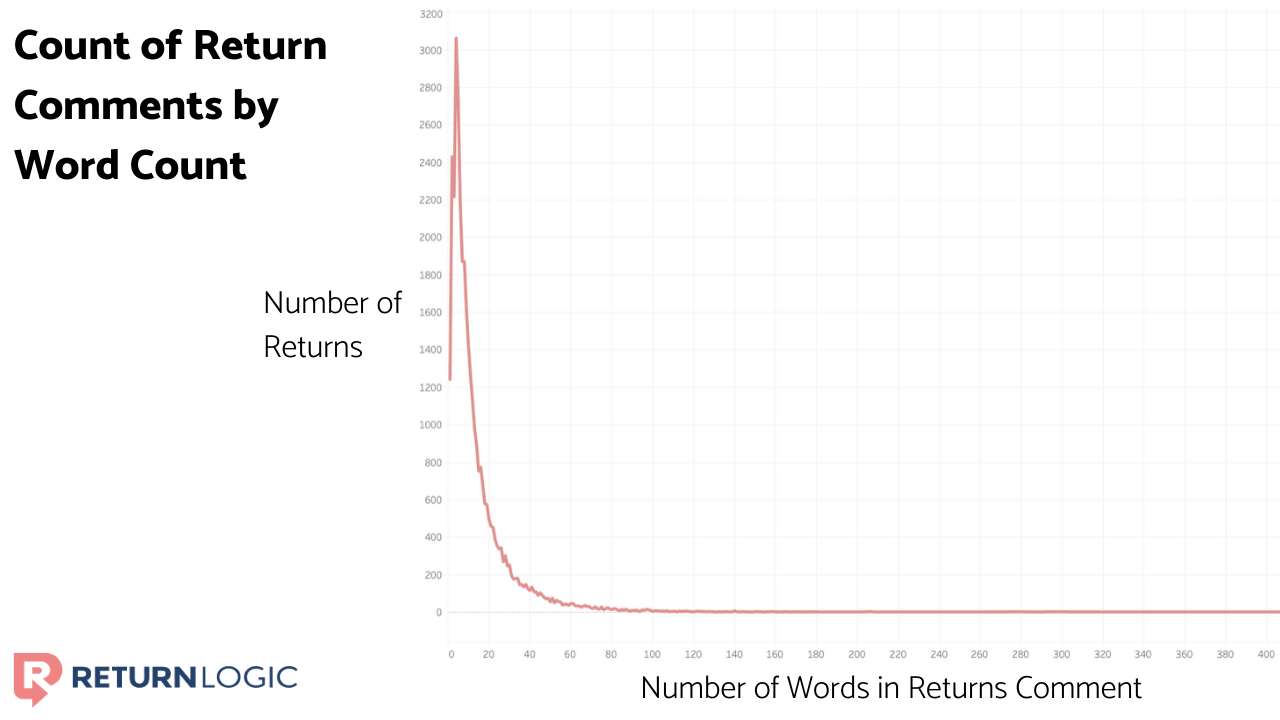Should Shopify Return Policies Require Comments?

“Who is your tailor? Is that person utterly stupid or just malicious?”
These are harsh words – words that would make any product designer cringe. But they’re also words retailers need to hear if they want to keep improving.
The way you structure your Shopify return policy will dictate the level of feedback you receive from shoppers returning a product.
Shopify Return Policy:
A return policy is the set of rules that apply to all customers regarding what can be returned. Return types indicate if a return is a refund, exchange, store credit, or warranty. Return windows cover when the customer can return those products. Return reasons address the cause for the return.
The comment portion of a Shopify return policy is the most overlooked source of customer intelligence in a product return.
Return reasons provide an overview of why the item is getting returned, but you can gather far more feedback from an open-ended comment section.
In many cases, retailers’ return policies don’t require shoppers to leave these comments with returns. The idea is to reduce some of the hassles for the shopper. But choosing to ignore this step in the return process leaves a lot of excellent information on the table. All this begs the question: Should Shopify return policies require comments?
The Power of Return Comments in Action
Following a product launch, one of our retailers noticed consistent complaints about the feel of the fabric in return comments. This observation prompted their team to get to the bottom of the issue and prevent it from occurring again.
They also used this experience to inform a re-engagement campaign to win back some of these shoppers by asking them to give the remodeled item a second chance.
Shopper feedback comes from a multitude of sources. Return comments are one part of a complete view of your customer experience.
Feedback like this is the best way to know what you’re doing well and what warrants attention, and can only be ascertained if your return policy requires comments.
Finding your Super-Engaged Shoppers
If your return policy requires comments, it will be easier for you to locate which of your shoppers are most engaged with your brand.
We’ve seen these comments tend to be very widely distributed – many are only a few words, but some nearly qualify as essays. The max is 530 words, though many of the highest are around 200 words.

We decided to look into the more robust return comments thinking that most would be from upset shoppers expressing their disappointment and others would be from dedicated shoppers providing precise feedback on the product or experience.
We also theorized that the content of extensive comments would indicate whether or not the shopper purchased again.
After examining some of the longest return comments for several retailers, we saw that this first notion was accurate.
The second hypothesis seems to hold true for the most abrasive comments. Almost none of those customers have purchased since.

Angry Comments
Some reviews were scathing, to say the least. These comments tend to have exact criticisms but may not contain generalizable or actionable information – it may simply be an unhappy shopper. Some comments attack the design, materials, or even the retailer for making the product.
Here is a little sampling: (Warning: things get ugly, fast!)
“It’s quite possibly the ugliest, drabbest, most sad dirty brown-pink color I’ve ever seen. I wouldn’t want someone to bury me in that shirt let alone see me in it while alive.”
“I can’t even begin to describe how utterly disappointed and shocked I am that you screwed up the world’s simplest thing – a silk shirt. Who is your tailor? Is that person utterly stupid or just malicious?”
For many of these shoppers, it signaled their last purchase with the brand.
But while these shoppers may be furious with the product or experience, that doesn’t mean the relationship is over.
The most important thing is that these individuals feel heard, which is why they submitted such an extended and enraged return comment to begin with.
It’s worth noting that you will not delight every shopper, nor do you need to. But every product return indicates the shopper’s expectation didn’t match reality. There’s a lesson behind each return, and it may simply be that expectations are misaligned. If your return policy requires comments, you will be better able to address your unsatisfied customer’s concerns.
Even the most indignant of comments may yield some wisdom. The chances are good that the shopper’s disappointment is warranted.

Thoughtful Comments
Many comments have a composed tone and have thoughtful feedback. Some contain niceties such as “Dear Friends” or “Good day,” or even apologize for returning the product. Others express their fondness for the brand and their intention to shop again. A few even identify potential market opportunities.
These are your shoppers to engage. They feel some connection to your brand and want to help make the experience better for themselves and others.
Here are a few examples of comments from customers who care:
“Your clothes are amazing – quality excellent, and I own several pieces. I will try again. I really want to support your company.”
“I am sad to be returning this beautiful blouse. The fabric and color are gorgeous. The fault lies in the cut of the blouse. The armholes aren’t deep enough. As a result, even though the blouse fits overall, it pulls across the chest when I move my arms. Deep armholes are to me the sign of a high-quality garment. You’ve created a beautiful product in every aspect but the tailoring.”
You should make these shoppers feel appreciated. Pursue them, especially if they expressed interest in shopping with you in the future.
Though a return may not be the desired outcome for your business, you should appreciate this feedback – it may offer some inspiration.
In Summary
Ultimately, it’s up to the retailer to decide whether or not to require comments in their Shopify return policy.
Adding a comment is a small additional step for the shopper, but it can contribute a helpful perspective for the retailer. And depending on the retailer’s return policy, you may miss this information entirely.
Even when shoppers are required to leave comments with product returns, they’re certainly not required to input upwards of 500 words. These comments indicate an intense passion or interest – either the shopper is very invested in your brand or is extremely upset.
No matter which case, lengthy return comments are a cue to investigate and engage the shopper. You may have a valuable shopper who is currently disappointed or a fountain of actionable feedback.
To learn more about the key questions to ask that can lead to more customers repurchasing, check out our guide: 6 Key Questions to Retain More Customers.



